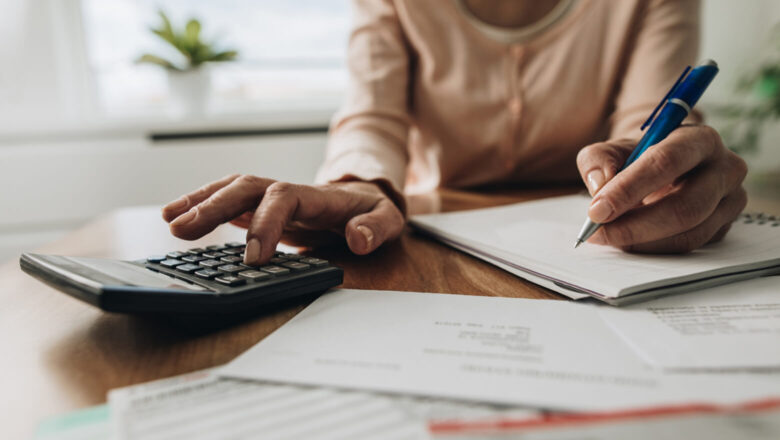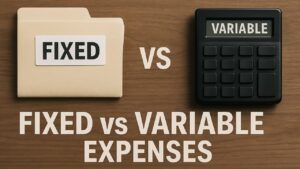Tracking your monthly expenses is essential for financial control. Budgeting and saving is nearly impossible without knowing where your money is going. Uncontrolled and unnecessary spending is often the reason why many people spend more than they earn, even when their income is stable. By tracking every dollar spent each month, you gain insight into your spending patterns, discover unnecessary expenses, and make better choices. This helps you stay disciplined and better understand your financial situation.
Your Spending Pattern
Track your monthly expenses, and your financial habits become clear at a glance. Small expenses like coffee breaks, online purchases, and unplanned dinners add up. Understanding your behavior can help you identify problem areas and patterns that help or hinder your financial situation. You may notice that “normal” expenses are eating into your income. Understanding your spending pattern is the first step to changing it and can give you more motivation to spend money on what really matters.
Make the System Work for You
A solution that fits your lifestyle and interests is essential for tracking your expenses. Whether you use a spreadsheet, notebook, or budgeting app, consistency is key. Choose a daily or weekly recording method that you can easily keep up with. Some people find it easier to use digital tools with automatic recording, but others prefer to enter their expenses manually. The most important thing is that the system supports honest, accurate, and regular recording so that you have a clear picture of your financial situation.
Keep Accurate Track of All Expenses
To be a professional logger, it is necessary to record every expense, no matter how big or small. Rent, utility bills, snacks, tips, parking, and change from the vending machine are all included. Many people only record large bills and ignore small ones, but these bills add up quickly. Keep receipts, record purchases promptly, and evaluate your spending at the end of each day or week. Accurate spending information can give you an accurate financial picture and build a sense of accountability over time.
Clear Expense Categorization
After you have recorded your expenses, divide them into housing, transportation, groceries, food, entertainment, savings, and debt repayment. This category shows where you spend the most and where you can cut back. It also makes it easier to compare monthly expenses. If a category is often overspending, you can analyze and adjust it. Categorizing expenses can simplify financial data and optimize budgeting strategies by revealing priorities.
Regular Expense Review
You need to review your expense data to be effective. Review your records at the end of each week or month. Compare your expenses, what you spent them on, and your income. This reflection allows you to see if you are sticking to your budget or overspending. Regular reviews allow you to spot trends and changes before problems arise. You can also celebrate small successes, such as staying within your budget in a certain category, to stay motivated and focused.
Adjust your Budget with Real Data
The purpose of tracking your spending is to inform your financial decisions, not just to collect data. Once you’ve established your spending habits, you can create or modify your budget. Set a realistic limit for groceries and plan meals if you spend more than expected. If you spend less in a certain category, you can use that money to save or pay off debt. Your budget should change with your financial situation, and tracking your expenses can help you make smart changes.
Organizational Technology
Modern technology makes tracking expenses easier than ever. Many budgeting apps and software can automatically categorize your bank account and credit card transactions. These apps alert you when you reach your budget limit and generate charts to track your spending. Technology can save time and help prevent errors. For less automated situations, spreadsheet templates and mobile note-taking apps are versatile and useful. No matter which method you use, keeping accurate records and achieving your financial goals requires organization.
Developing Successful Financial Habits
Tracking your spending should become a habit, not a one-time task. It requires dedication and perseverance, just like eating healthy or exercising. As you develop a habit of tracking your spending, you’ll begin to scrutinize your purchases and compare them to your budget. Tracking helps you delay gratification and reduces impulse purchases by encouraging you to focus on your money. As you continue month after month, your financial confidence will grow. Good financial habits, including tracking your spending, help you stay stable in the long run, reduce stress, and feel more in control.
Motivation to Set Goals
Setting financial goals helps you stay motivated while managing your expenses. Goals give you a reason to save for travel, an emergency fund, paying off debt, or buying a home. It’s easier to compromise and stick to your budget when you understand how your daily spending affects your long-term goals. Every dollar you track helps you achieve your goals. Celebrate successes to stay motivated and remind yourself that tracking your spending will help you achieve the life you want.
Conclusion
Awareness, self-discipline, and a personal strategy are all it takes to professionally track your monthly expenses. By keeping track of every transaction, categorizing your expenses, reviewing your spending patterns, and revising your budget, you will gain insight into your financial situation. Technology has made this process easier, and making it a habit can pay off in the long run. The most important thing is to track your spending and align it with your values and goals. Tracking monthly will give you financial clarity, security, and freedom.
FAQs
1. Why should I track all my expenses, even the small ones?
Small expenses can quickly add up. Tracking them will help you know where your money is going and prevent you from overspending.
2. Should I track my expenses manually or use an app?
Choose your method – both are fine. Apps are convenient and automatic, but manual tracking is less of a hassle.
3. How often should I check my spending?
Reviewing your spending log weekly or monthly can help you track your spending and adjust your budget.
4. What should I do if I’m spending too much?
Identify your overspending points, set limits, and find strategies to cut back or switch to cheaper solutions.
5. When will you see results from your spending log?
With consistent tracking, you can see improvements in financial awareness and savings within a month or two. The benefits will add up over time.




